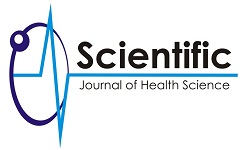|
Anike Natalina Sirait1 | Hantoro Ishardyanto2 | Eddy Herman Tanggo3 Abstract Breast cancer is the most prevalent malignancy for Indonesian women. The arising problems are also from the high figure of morbidity, mortality and treatment burden. Almost 70% Indonesian breast cancer patients are diagnosed with advanced stadium who are in need systemic therapy such as chemotherapy. Descriptive study at Dr. Soetomo Surabaya between 2011 and 2013 showed that 52% of patients with neo-adjuvant chemotherapy responded poorly. This data has been implicated in many researches pertaining to chemotherapy predictive factors. Vitamin D is one form of antioxidant which induces anti-cancer activity and potentiates chemotherapy agent. This is a prospective longitudinal cohort study with the aim of understanding the relationship between vitamin D serum level and clinical response of neo-adjuvant chemotherapy on postmenopausal women with locally advanced breast cancer who are treated with CAF first-line neo-adjuvant chemotherapy. 30 subjects are chosen consecutively. Clinical staging and vitamin D serum level are measured before undergoing first cycle of chemotherapy. Clinical response and vitamin D serum level are checked again after third cycle. The clinical response in this study are categorized as 1 (3.3%) with progressive disease, 17 (56.7%) with stable disease, and 12 (40%) with partial response. The result displayed a significant association between pre-chemotherapy vitamin D serum level and clinical response post-chemotherapy clinical response (p = 0.004; OR = 10.5 (CI: 1.889-58.359). This study also analyzed a significant difference in vitamin D levels between pre- and post-chemotherapy (p = 0.016). There is a significant relationship between vitamin D serum level and clinical response of postmenopausal female patients with locally advanced breast cancer whom are treated with three cycle of CAF neo-adjuvant chemotherapy. |
Keywords: locally advanced breast cancer, vitamin D, neo-adjuvant chemotherapy, menopause

